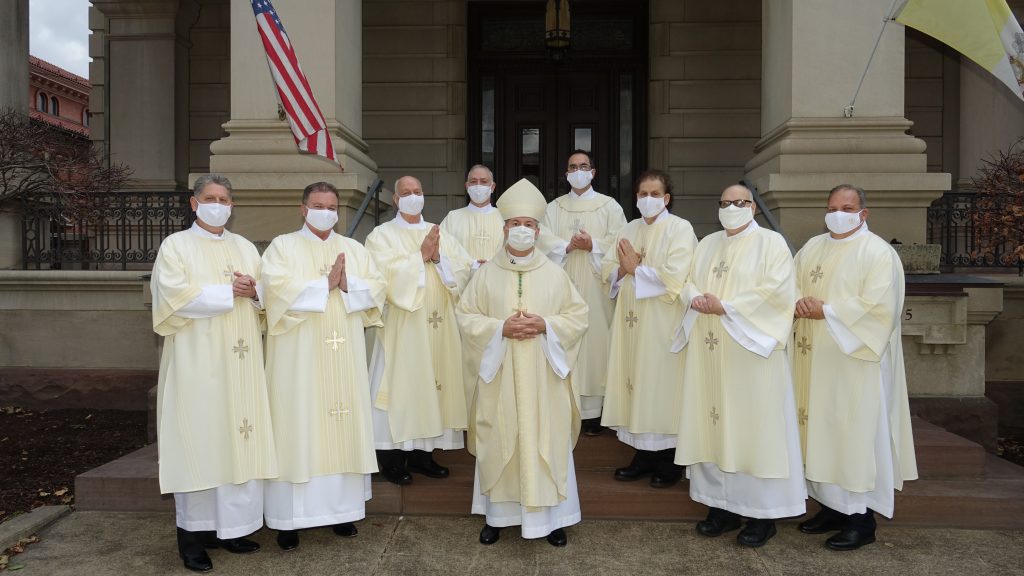
SCRANTON – As they celebrated the Rite of Ordination, eight men who became permanent deacons in the Diocese of Scranton on Nov. 28, 2020, were reminded of the need to put others before themselves.
During his homily, Most Rev. Joseph C. Bambera, Bishop of Scranton, reminded the men that they have opened their lives to the Lord’s love and because of it, they seek to love him in return through service to His people.
“To be a disciple of Jesus means to put ourselves in the humble, demanding role of servant to others, to intentionally seek the happiness and fulfillment of those entrusted to our care, regardless of the cost to ourselves,” Bishop Bambera said.
The newly ordained deacons will join the ranks of clergy who minister to the faithful in parishes and other settings throughout the diocese. Their diaconal ministry is threefold: service to the Word of God, service at the altar of the Lord and service to the poor.
As deacons, the men will proclaim the Gospel, preach homilies, prepare the altar for the banquet of Christ’s sacrifice, distribute Holy Communion, 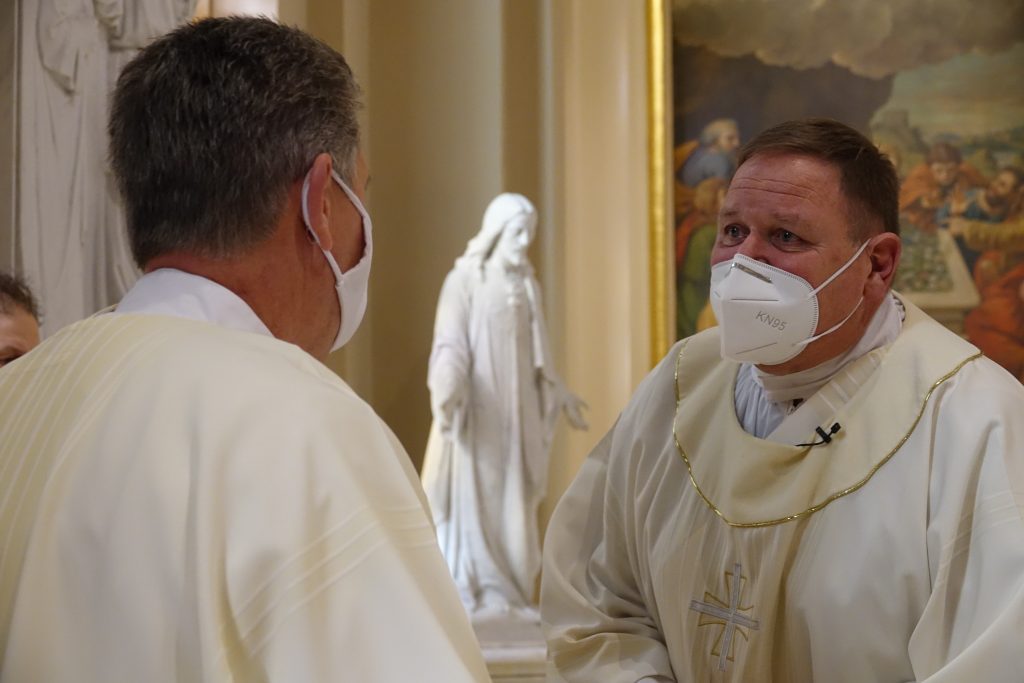 baptize, preside at weddings, funerals and other prayer services and be the living and working expression of the charity of the Church.
baptize, preside at weddings, funerals and other prayer services and be the living and working expression of the charity of the Church.
“Your ministry, to be fully diaconal and unified, must include some form of direct service to the poor and to those most in need,” the bishop explained.
The men accepting the diaconal call and responsibilities include Eugene N. Blockus, Joseph J. Chmiola, John C. Jorda, Peter J. Lemoncelli, Joseph R. Marcellus, Gerard P. Pernot, Angel Luis Rivera and Joseph Sudano.
“My brothers, God has called you to serve the Gospel in an authentic and vital way. While your ministry will not always be easy, set aside your fears and embrace your call with deep trust in Jesus’ promise to walk with you always. Follow Jesus’ example of selfless love and mercy. And serve God’s people generously as you would serve the Lord himself,” the bishop ended his homily by saying.
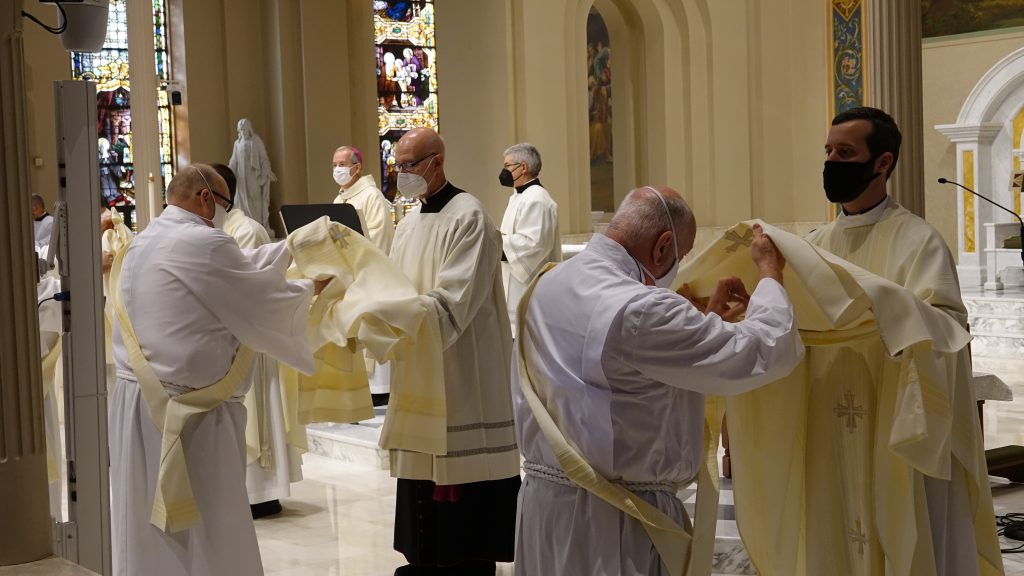 SERVICE ALREADY INSPIRING
SERVICE ALREADY INSPIRING
Deacon Gerard P. Pernot said he was drawn to the diaconate as a way to say thank you for everything he has received in life. Even before ordination, he has been serving the community by volunteering with a hospice organization and assisting local refugees.
“I’ve been blessed to work with a refugee family who came to our country with six children and one bag. I didn’t know what to think, honestly, when I had the opportunity to get involved with the refugees. I have gotten so much more out of it,” Pernot said.
For the last several years, Deacon Joseph J. Chmiola has been visiting nursing home residents and homebound parishioners from his parish, Saint Jude Parish in Mountain Top.
“I really enjoy visiting with the shut-ins…They are like family members. I’ve been with them about three years, I know who they are, I know what they like, I know what they dislike,” he explained.
The bishop’s words about being a servant leader resonated with Deacon Peter J. Lemoncelli, who has been serving in hospice programs, along with doing hospital visitation, outreach to the elderly and assisting refugees. During the COVID-19 pandemic, he has come to a deeper understanding of the struggles many face.
“I saw the perspective that the homebound have, many of them being in their homes year after year, many of them with no relatives or family left,” Lemoncelli said. “It gave me a much stronger closeness to their needs.”
READY TO MAKE AN IMPACT
Deacon Angel “Luis” Rivera has been working with the Hispanic population across the Diocese of Scranton for several years. As a deacon, he hopes to continue welcoming their presence in parishes from the Poconos to the Wyoming Valley.
“We open doors. We made them feel welcome and I’m just there to serve them and if I can, bring them to a closer encounter with Jesus,” Rivera explained.
Deacon Joseph Sudano hopes his diaconal ministry will allow him to help people find relevance with the church in their lives. He recently had a very positive experience leading an RCIA group, bringing adults into full communion with the church.
“I’m Director of Faith Formation at Saint Nick’s in Wilkes-Barre so I’ve been blessed to be able to work in the church for the last few years. I think that becoming a deacon will only enhance that and really just bring further growth and further opportunities for me to reach people,” he said.
As a nurse and paramedic, Deacon Eugene N. Blockus believes he can serve God and do His will by serving his community.
“I worked emergency medicine so I saw more tragedy than I saw good,” Blockus said. “During those times, I would stop when it was possible and quietly pray with the families or with the patients and I knew there was more that I could do. I felt there was a greater calling because a lot of times they would be looking for a minister or a priest.”
CALLED TO THE DIACONATE
Deacon John C. Jorda admits he never even considered being a deacon until just a few years ago. He didn’t know any deacons and was unfamiliar with their duties. With both his parents and children battling health issues, he even got upset with God. It wasn’t until he got back involved with the church that he discovered his future ministry.
“I started praying and one day while praying to God, what do you want me to do for you, it just popped in my head and it was burning inside of me and I couldn’t get it out of my mind,” Jorda admitted.
Jorda says the amount of support he received from parishioners has helped him throughout the years of formation. As for the formation program itself, Jorda said, “it helped me learn more about myself…The material things don’t mean that much anymore. It’s all about helping people, helping people find their way like I found my way.”
Admitting that he is reluctant to try new things, Deacon Joseph R. Marcellus joined the Knights of Columbus and that move, unknowingly at the time, would help him find his path to ordination. As he began to meet more people, he became a lector and extraordinary minister of Holy Communion.
In his profession as an architect, Marcellus will now be able to help build God’s kingdom on earth, which we are all called to do through baptism. He credits the Diaconate program for opening his eyes to many different things.
“I build things, I design things, I put things together but probably the biggest thing I’ve gotten out of being in the Diaconate program is not what I’m building but what people build and give back to me. I’m constantly amazed when we try to help people or go out and do something or serve people, I am the one receiving, not the one giving,” he explained.

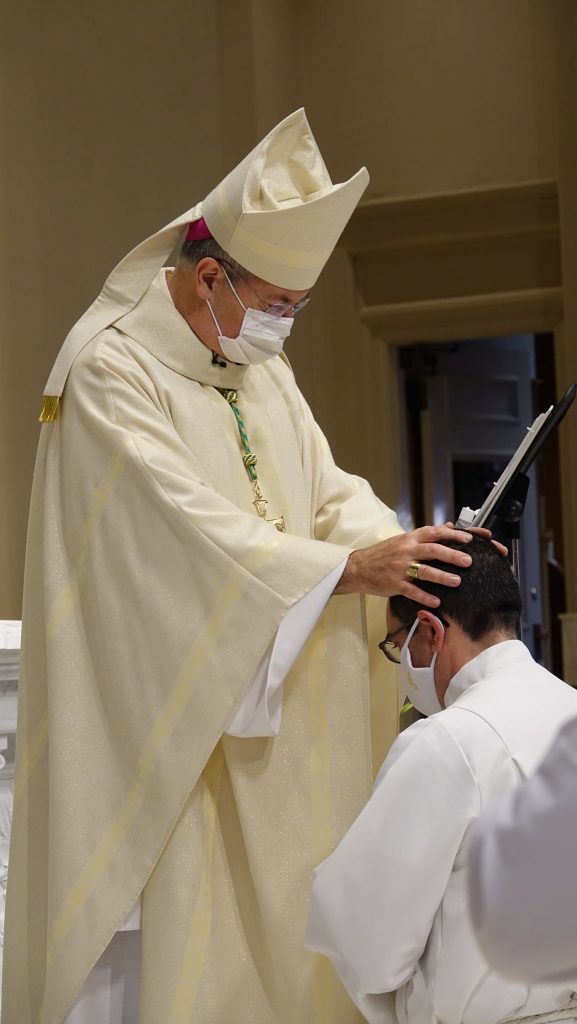
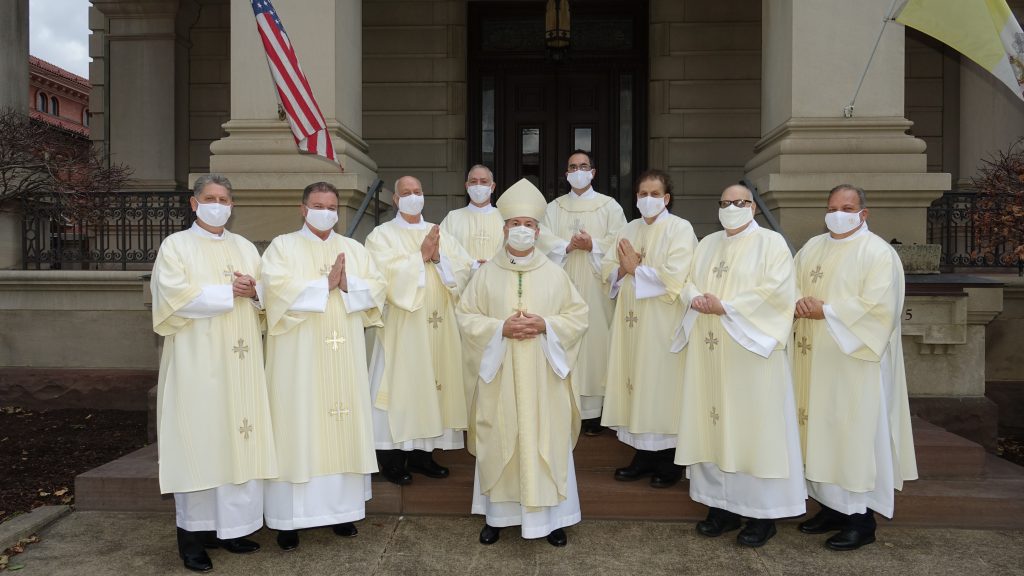 Marcellus, Gerard P. Pernot, Angel Luis Rivera and Joseph Sudano.
Marcellus, Gerard P. Pernot, Angel Luis Rivera and Joseph Sudano.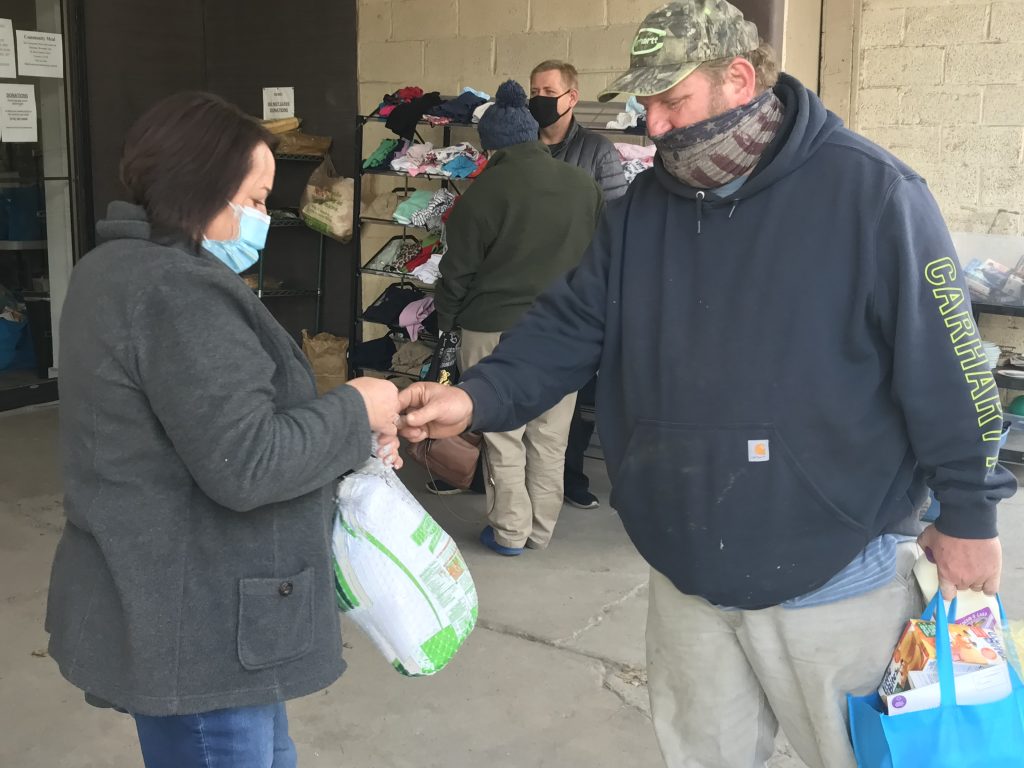
 Sinawa, who owns his own small tree-cutting business, is used to helping people and giving away free services but during the pandemic his phone hasn’t been ringing as much.
Sinawa, who owns his own small tree-cutting business, is used to helping people and giving away free services but during the pandemic his phone hasn’t been ringing as much.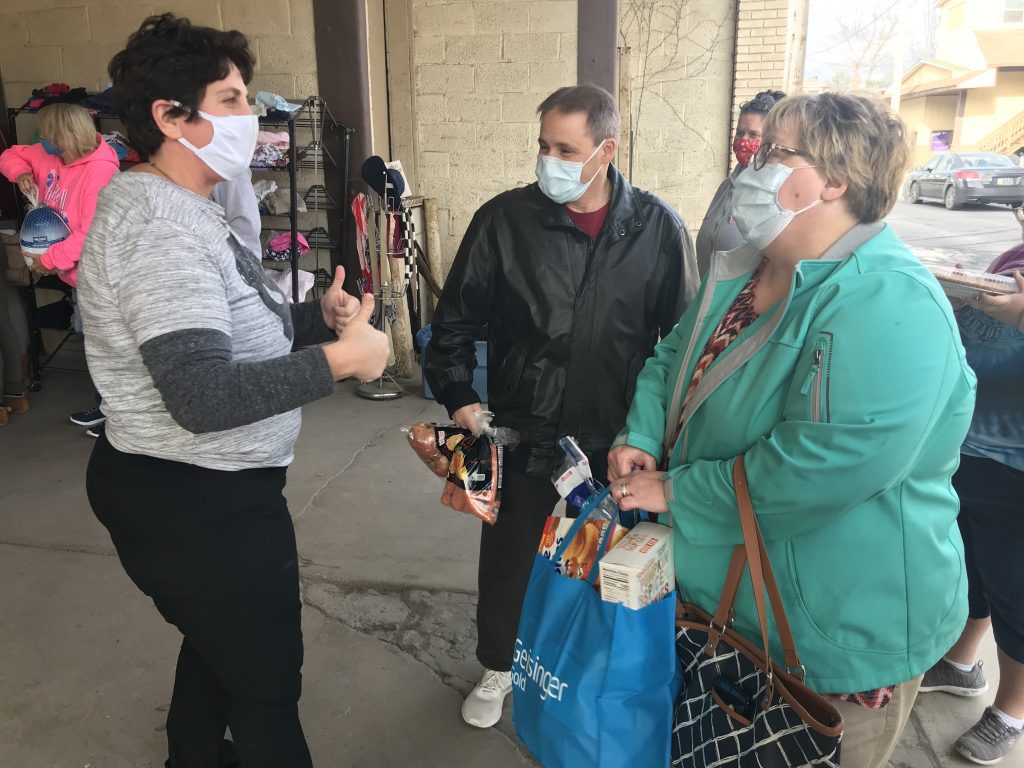 received assistance from the Ancient Order of Hibernians Division 2 and the United Methodist Church of Carbondale.
received assistance from the Ancient Order of Hibernians Division 2 and the United Methodist Church of Carbondale.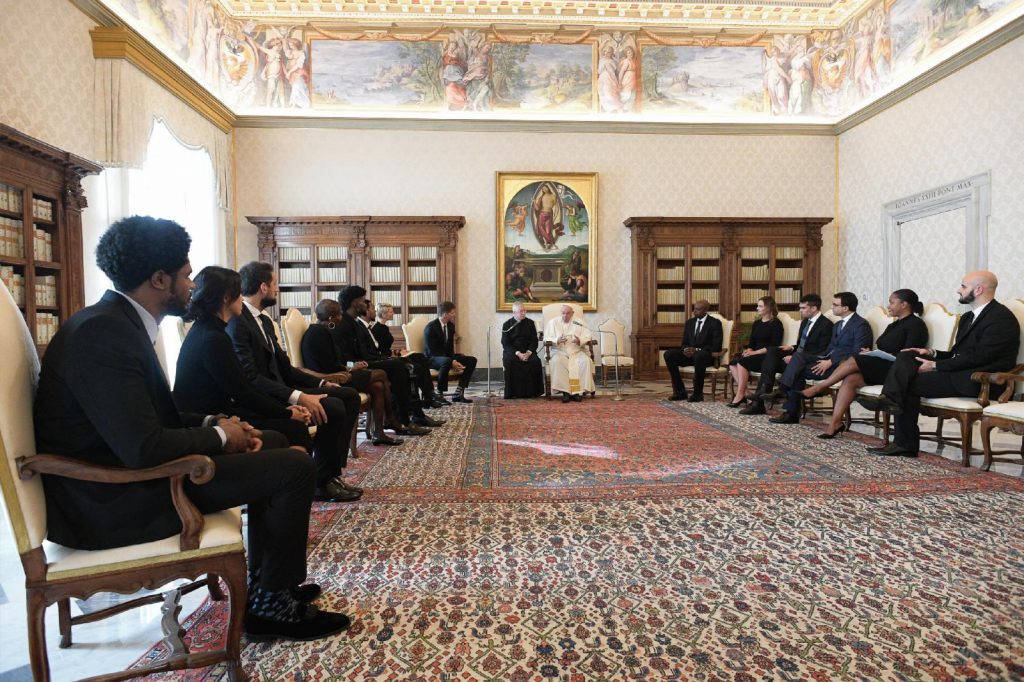



 During Appeal Online Commitment Weekend, parishioners can make a gift on their parish team page that will be credited immediately to their parish’s Annual Appeal goal.
During Appeal Online Commitment Weekend, parishioners can make a gift on their parish team page that will be credited immediately to their parish’s Annual Appeal goal. SOUTH ABINGTON TOWNSHIP – Northeastern Pennsylvania will soon be losing one of its oldest religious communities. Saint Gabriel’s Monastery will close on Dec. 31, 2020, ending of a 94-year presence by the Passionist Nuns in Northeastern Pennsylvania.
SOUTH ABINGTON TOWNSHIP – Northeastern Pennsylvania will soon be losing one of its oldest religious communities. Saint Gabriel’s Monastery will close on Dec. 31, 2020, ending of a 94-year presence by the Passionist Nuns in Northeastern Pennsylvania. Sister Teresita Kho has been part of the Passionist Community at Saint Gabriel’s for the past 26 years. She, along with Sister Olive Ann Schneider, are the two remaining nuns at the monastery. She believes that Saint Gabriel’s will be missed and has received communications to support her belief.
Sister Teresita Kho has been part of the Passionist Community at Saint Gabriel’s for the past 26 years. She, along with Sister Olive Ann Schneider, are the two remaining nuns at the monastery. She believes that Saint Gabriel’s will be missed and has received communications to support her belief.